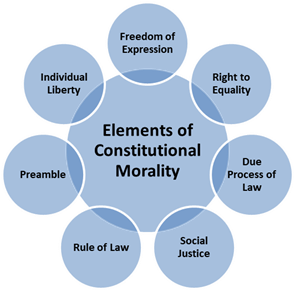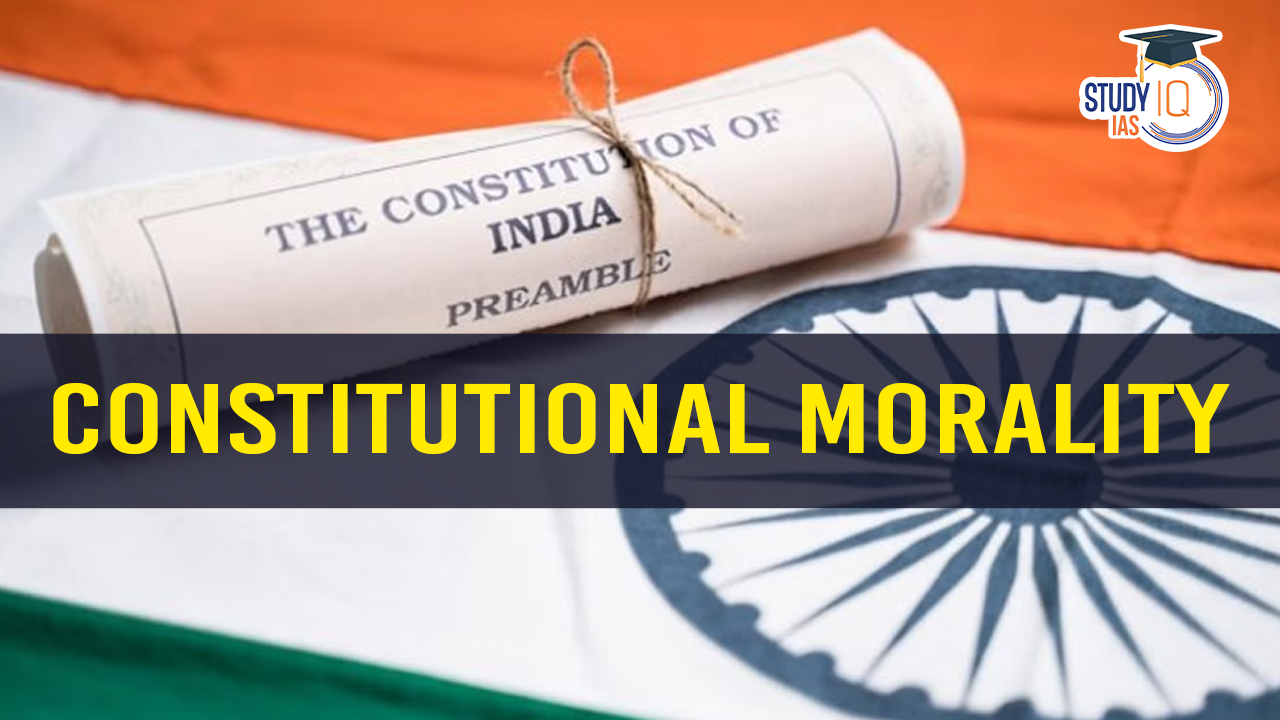Table of Contents
Context: Recently, the concept of Constitutional Morality has been increasingly used in the Indian judiciary to interpret laws and assess the constitutional validity of statutes.
About Constitutional Morality
- Constitutional Morality refers to the guiding values enshrined in the Constitution that must be protected to uphold the integrity and vision of the Constitution.
- It goes beyond the literal interpretation to encompass a commitment to values such as sovereignty, social justice and equality in constitutional adjudication.
- Constitutional morality offers a mature form of constitutionalism, balancing respect for the Constitution with the ability to challenge and reform it when necessary.
- This balance prevents a shift towards fundamentalism while allowing for stability and change.
Distinction from Constitutional Patriotism
- The concept of constitutional morality is distinct from Jürgen Habermas’ constitutional patriotism, which emphasizes solidarity and allegiance based on shared norms and values in a constitution.
- While constitutional morality focuses on process and critique, constitutional patriotism leans more towards a singular national identity.
Historical Origin
- Constitutional Morality was first conceptualized by George Grote, a British classist, in his historical work A History of Greece.
- Ambedkar, in his speech on The Draft Constitution (1948), also emphasized that constitutional morality must be cultivated to sustain democracy.

Important Cases with Respect to Constitutional Morality
Navtej Singh Johar v. Union of India (2018)
- The Supreme Court, in its judgment, invoked constitutional morality to argue that the law must evolve in line with the fundamental rights guaranteed by the Indian Constitution.
Joseph Shine v. Union of India (2018)
- The Supreme Court struck down Section 497, holding it unconstitutional, and emphasized that constitutional morality mandates that laws should not infringe upon an individual’s right to equality and dignity.
Union of India vs. Government of the NCT of Delhi (2018)
- SC ruled that high-ranking officials must adhere to constitutional morality and uphold the ideals outlined in the Constitution to prevent the arbitrary use of authority.


 National Judicial Appointments Commissio...
National Judicial Appointments Commissio...
 Draft Digital Personal Data Protection R...
Draft Digital Personal Data Protection R...
 Bulldozer Justice, Issues and Justificat...
Bulldozer Justice, Issues and Justificat...





















